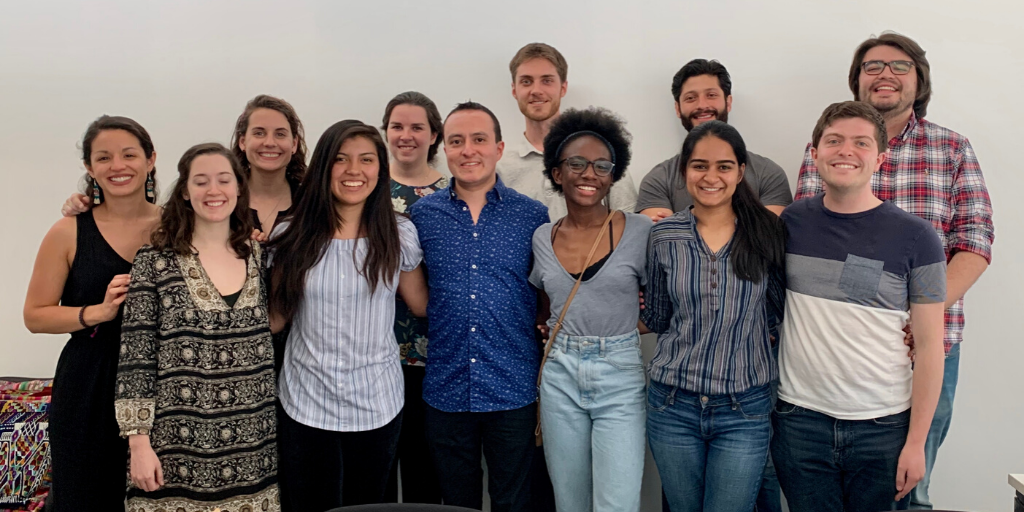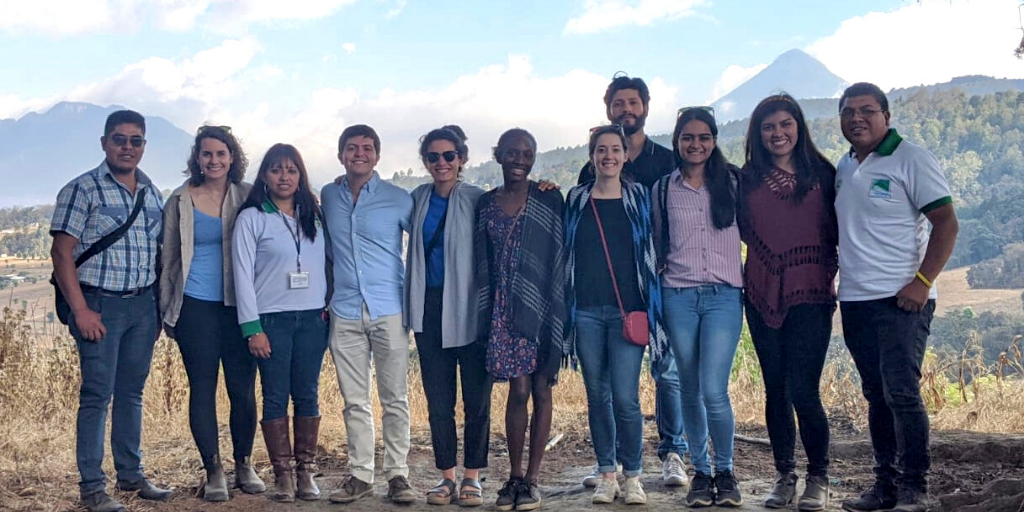Impacts of Deportation on Guatemalans
Project Team

Team profile by members of the Migration and Deportation of Guatemalans in the U.S. and Guatemala project team
Before the pandemic, every week, the U.S. deported 12-15 planes full of Guatemalans. Although the pandemic decreased the number of deportees, deportation remains the primary migration policy of the U.S. Government. Yet little is known about the reintegration of these people when in Guatemala or the physical, mental, economic and social impacts of deportation on communities in the U.S. and Guatemala. Our team of professors, graduate students, and undergraduates used quantitative and qualitative methods to better understand structural issues and the resulting human impact of deportation.
Starting in Spring 2020, the team examined the Guatemalan deportation crisis from the perspective of both recent deportees in Guatemala City and North Carolina’s Guatemalan community. As a result, we divided into three teams analyzing the deportation landscape in Guatemala, the migrant communities in NC, and potential new interventions and data collection endeavors.
Through the analysis of large-scale surveys of deportees in Guatemala City collected by DevLab@Duke, we learned about some of the immediate challenges that deportees face. Arriving at an airport far from their homes, most deportees lack assets, miss their families in the US, and see few public services or job opportunities in Guatemala. We found that most deportees are reluctant to return to source communities where gang violence, police harassment, employer stigma against deportees, and loan shark intimidation persist. Rather than leading to reintegration and resettlement, deportation often creates a dangerous re-migration pattern.

To contextualize the results of the survey, team members traveled to Guatemala in March 2020 to meet with NGOs, academics, Guatemalan policy-makers, international organizations and journalists. It was a challenge to reconcile the distinct perspectives and approaches of each stakeholder. We found many stakeholders who wanted to support the reintegration of deportees. For example, the Guate Te Incluye effort coordinates economic reintegration for deportees across private-sector, public-sector in Guatemala. However, our talks with government officials and advocacy leaders revealed policy backsliding and de-prioritization of migration issues in Guatemala.
On the other hand, speaking with community leaders in rural areas revealed the counter-narrative “Derecho a No Migrar” ("Right to Not Migrate"), a movement which seeks to restore the hope of young Guatemalans to stay and improve their conditions through entrepreneurship, and highlight the unspoken dangers of migration such as the high levels of sexual violence that female migrants face during transit.

Our understanding of this issue was not complete without understanding the human impact of deportation in the United States. Focusing on North Carolina, we met with the Guatemalan Consulate, agricultural workers rights organizations, domestic violence organizations, faith-based groups, small business funding groups, family and community organizations. These interviews helped us better understand the motivations, lived experiences, and challenges of migration and the deep impact of deportation for families.
At the end of the research process, we focused on communicating our key takeaways in order to contribute to changes in US migration policy. The team has produced a series of reports, academic working papers, grant proposals and written op-eds in The Washington Post, Brookings and Vox LACEA, in addition to presenting our findings to various conferences. Beyond extending our own research, we also supported creative projects that humanize migration narratives by writing an academic film guide for the documentary Five Years North.
Overall, we think that deportation is not a sustainable policy tool to handle migration from Central America. Other tools like investments in development programs in Guatemala can help by increasing the economic opportunities of future migrants. We also believe that we need to do more research into the discrimination of deportees into their own country as well as the mental health challenges migrants face during and after their journey. Being able to provide mental health counseling or economic opportunities for immigrants might be something local governments should consider.
